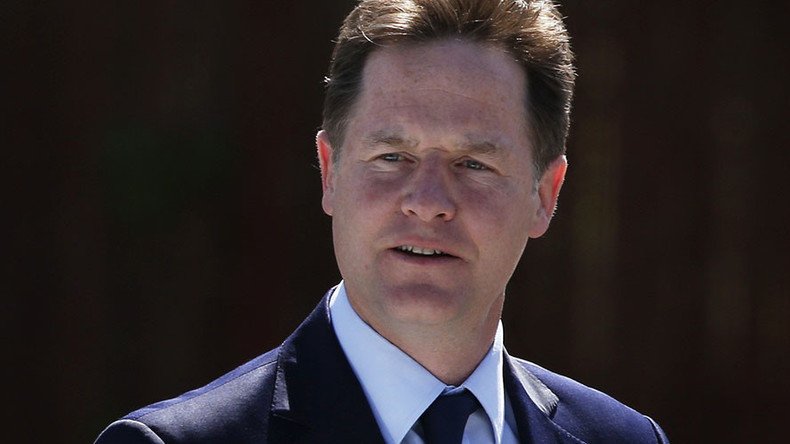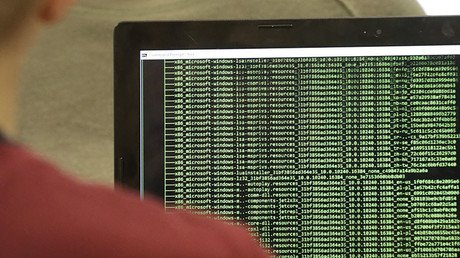‘Snoopers’ charter’ still allows bulk data collection – ex-Deputy PM

Spy agencies will still be permitted to exercise bulk data collection under the Investigatory Powers Bill, dubbed the “snoopers’ charter,” former Deputy Prime Minister Nick Clegg has warned, as MPs slam the draft legislation.
Clegg, who led the Liberal Democrats in the 2010-15 coalition government with the Tories, told the BBC the proposed bill had created “a great congregation of concern” throughout all the major parties. He called the legislation “disproportionate.”
The bill will allow security agencies to access the internet browsing history of every UK citizen and store it for up to 12 months, as well laying out permission to track phone calls and web use.
He told BBC Radio 4’s Today program: “Why there is this great congregation of concern from all wings of political opinion is because what the Home Office is in essence proposing is that in order to be able to surveil and analyze something they are saying they want to collect everything on everyone. That is a dragnet approach which I have always felt is disproportionate.”
Clegg’s comments come as the Investigatory Powers Bill Joint Committee publishes a damning report on the proposed legislation, stating that Home Secretary Theresa May has not yet presented a persuasive argument for the bill.
Clegg, who persuaded the Tories to abandon their original surveillance bill in 2012, added: “I know the needle-haystack argument and it is a comforting analogy. But the reality is a little different. Why, for instance, is there no other European or Commonwealth country that I know that pursues this dragnet approach?”
The joint committee report is the third report criticizing the bill in as many weeks, and will force May to reconsider many aspects of the proposed legislation. The bill was initially introduced to improve transparency in the wake of NSA whistleblower Edward Snowden’s revelations of mass surveillance.
The report makes 86 recommendations for the Home Secretary, which focus on making sure the spying powers are workable and understood by those affected, as well as making sure there are appropriate safeguards.
Chair of the committee Lord Murphy said the bill was “flawed.”
“The fact that we have made 86 recommendations shows that we think that part of the bill is flawed and needs to be looked at in greater detail. There is a lot of room for improvement.”
Dominic Grieve MP, a former attorney general who chairs the Intelligence and Security Committee, said that the bill was not thorough enough.
“It is ... disappointing that the draft bill does not cover all the agencies’ intrusive capabilities – as the committee recommended last year. This means that the various powers and authorizations remain scattered throughout different pieces of legislation and, as a result, the draft bill is limited in the extent to which it can provide a comprehensive legal framework. In our view it is a missed opportunity.”













